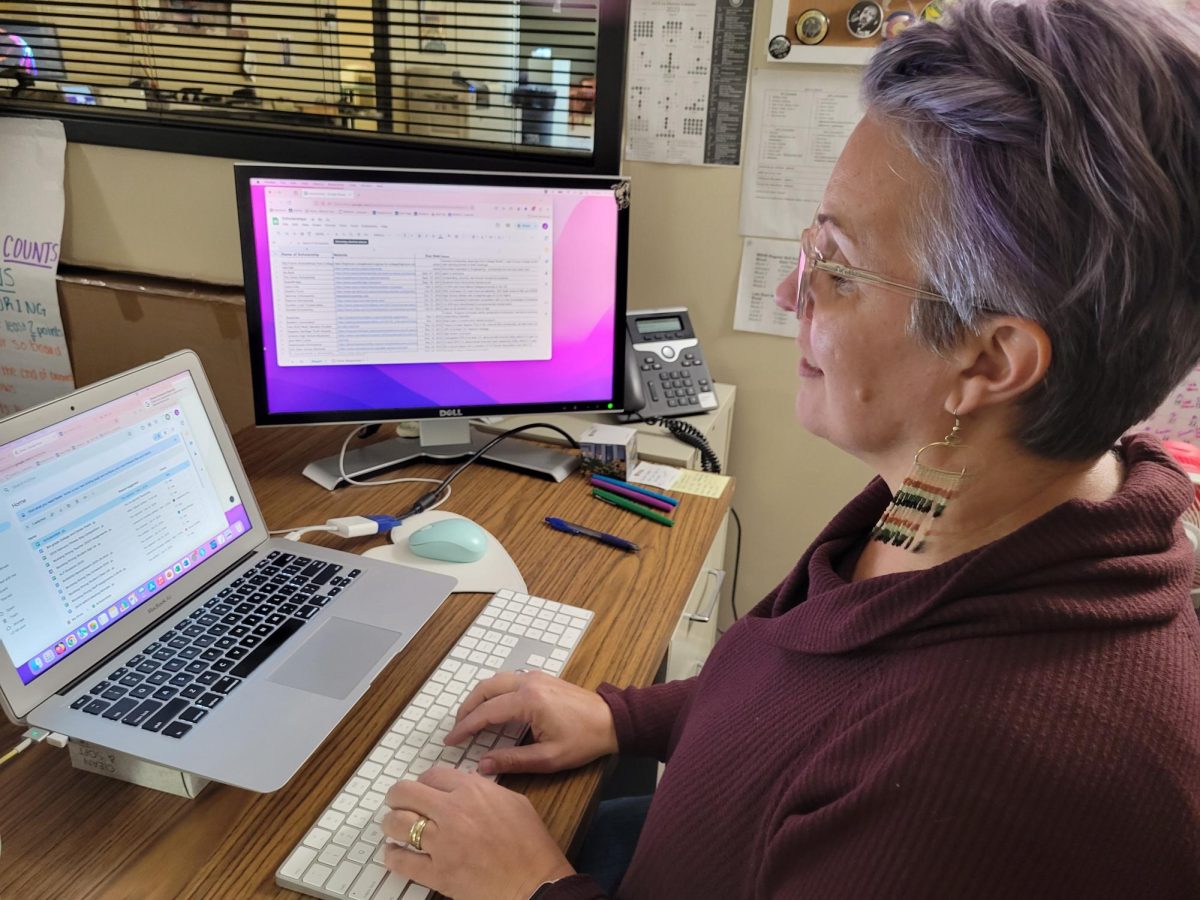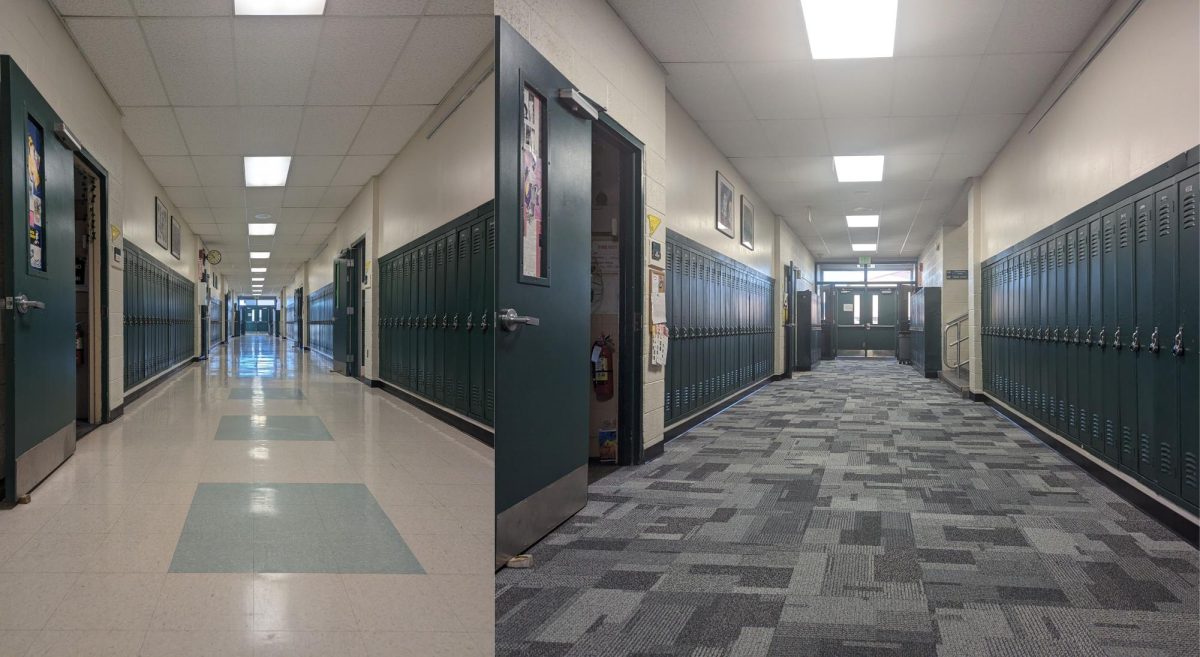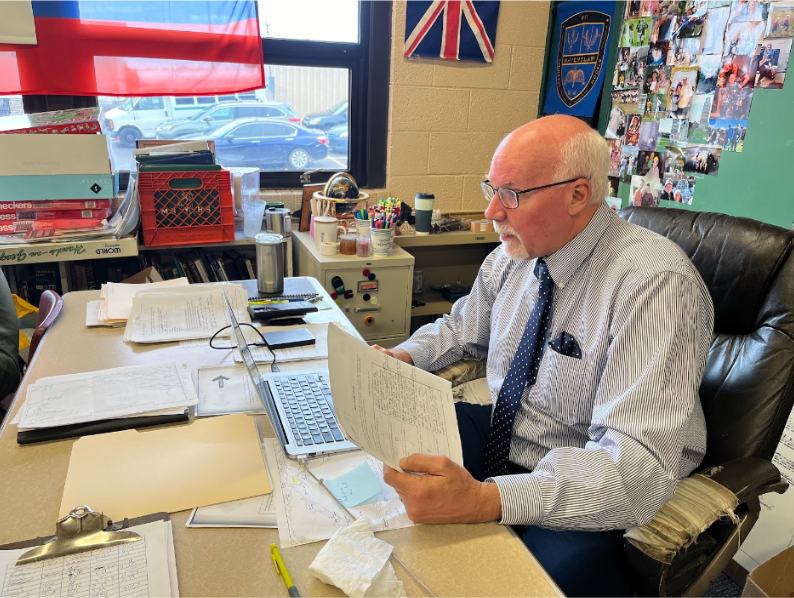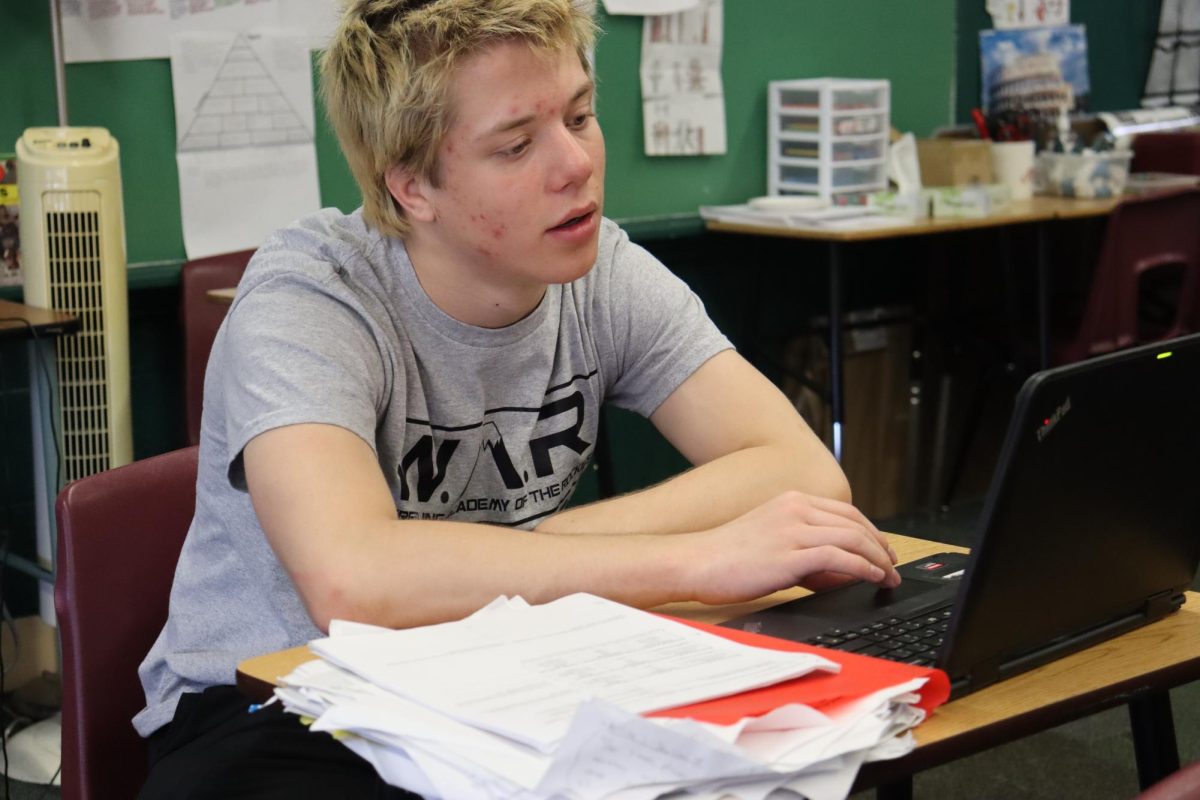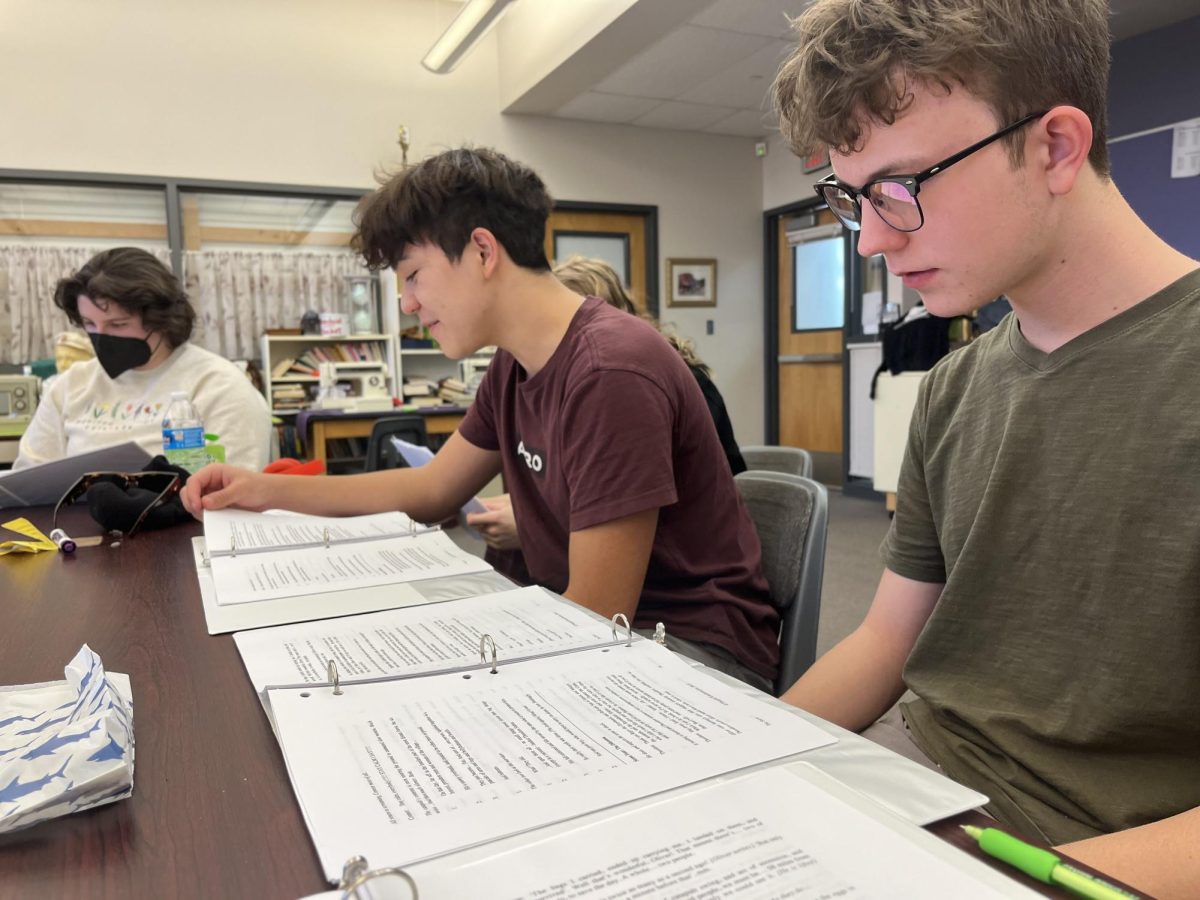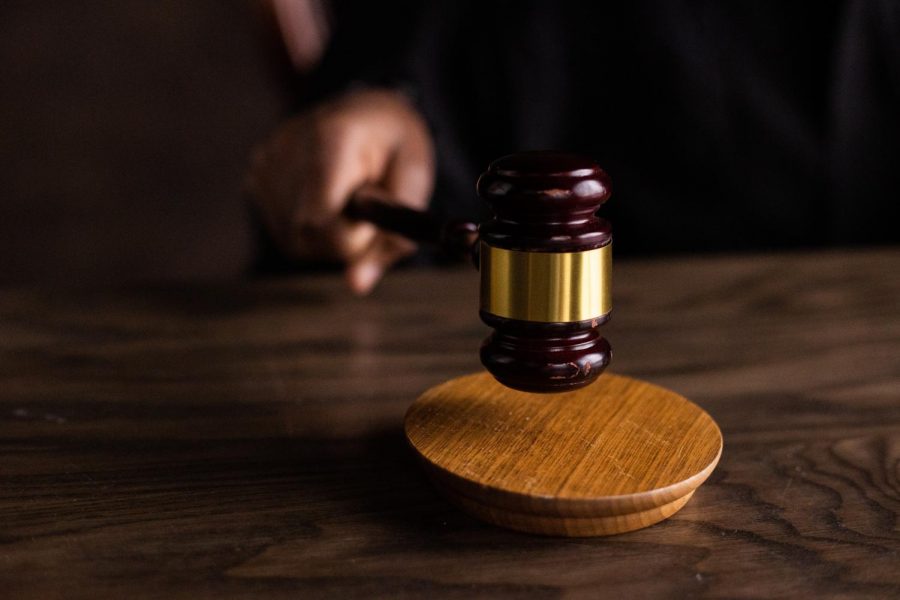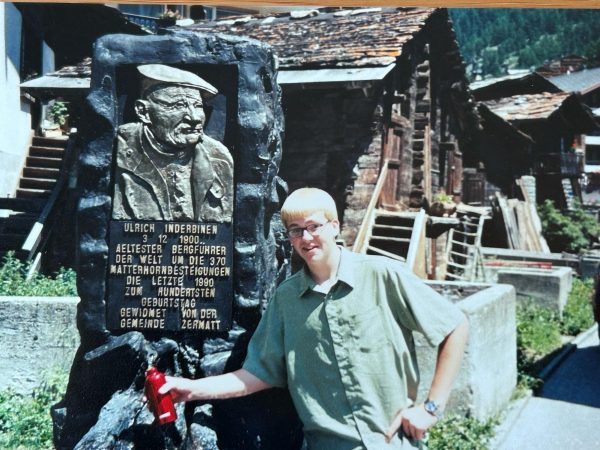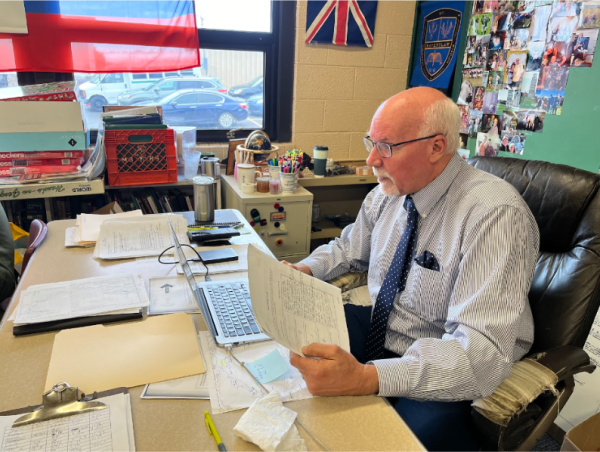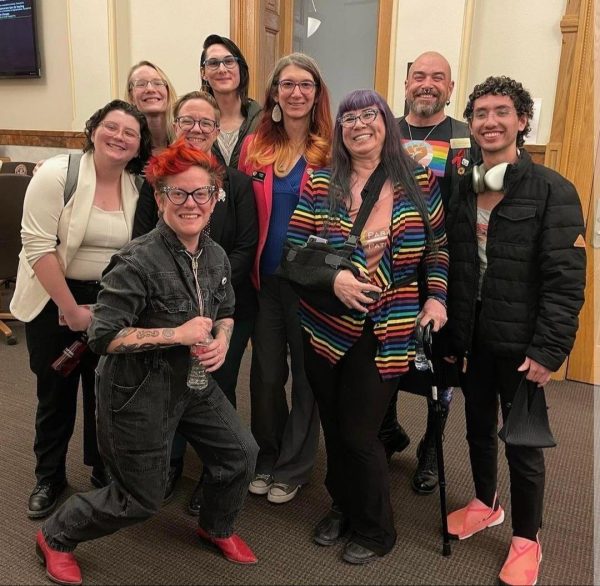Gideon Aigner heads to State for Speech & Debate
What will he do there? Check it out here…
March 19, 2021
So, this was supposed to be for a bill that I had actually envisioned. I listened to the story of a family seeking political asylum in the “This American Life” podcast (which all of you should take a listen to, it’s really good), and it was extremely disturbing to me. Ultimately, the bill was not selected because it was not debatable enough in the way it was written, but I still really liked the speech that I wrote for it. Then, about a week later, we were doing a group debate, and this the question was “Should the U.N. investigate Human Rights Abuses on the Mexican-American Border?” You have to write a speech for each side, but I basically already had a speech for the PRO side of the argument. Unfortunately, due to circumstances outside of my control, I was not able to give this speech, so now I am presenting it to you. Let me know what you think in the hallways or in email.
In February of last year, a man named Moises left Nicaragua with his wife and daughter to escape from literal torture. When he made it to the Mexican-American border with pages of evidence that he and his family had been persecuted for their politics, they were not given an opportunity to seek asylum and were sent back to the very people that persecuted them in the first place. There are thousands of people like Moises and his family, who have been turned away for no legal reason, and even more who are being held illegally, and this should be more of an international issue, which is why the UN should investigate Human Rights Violations on the Mexican-American border.
But there has been a problem on the US-Mexico border for years. It’s been a major issue in every presidential election since 2000. Ever since the Obama administration, the debate has been raging on how to handle the influx of immigrants coming through the U.S. border with Mexico, even internationally. Now, the subject of debate has turned to human rights violations, which to quote comedian Jonathan Aryan Jafari, “not only is that a major violation to health, that’s a violation of human decency.” And that’s what we are talking about today, violations to human rights violations of the U.S.-Mexico border. Should this House call on the UN to investigate what is happening, even if there are no violations? First, we shall address the point of political asylum seekers and the U.S. Government’s illegal refusal which is a prime example of the abuses happening on the border, then we will discuss the people detained on the border, whose treatment is downright inhumane, and then we shall discuss how the U.N. would help to resolve the situation on the border. Justice demands that the World react to protect the human rights of Moises and the many others fleeing persecution.
Going back to the story of Moises and his family, Moises, a fluent English speaker begged and pleaded for asylum, and told every American that he saw about the literal torture that he was subjected to as a result of his political beliefs. Then, America, the so-called “Home of the Free” sent him back to a government that he had documented thoroughly had kidnapped him and that had “stripped me naked, and did some things that my wife doesn’t even know.” They sent him back and they did not give him an interview to determine if he needed asylum, which is illegal. A “credible fear” interview is required by law according to the United Nations High Commissioner for Refugees, Procedural Standards for Refugee Status Determination under UNHCR’s Mandate 4.3.1-3 (2003), and, reportedly, interviews are not being given to these people. Exacerbating this problem, asylum has been paused in a lot of places.
In an article by the LA Times on January 20th this year, the Director of an asylum center on the Mexican side of the border, Paulina Olvera Cáñez, blames both the United States and Mexico for the situation asylum seekers are now facing. “There was a total abandonment by both governments,” she said. “The pandemic has been really hard for migrants. They’re living in a really precarious situation.” Very few people are being let through, even for medical treatment. Immigrants or asylum seekers that aren’t sent home or let through for medical reasons are then expelled until their hearing comes, but all hearings and waitlists have been paused since March of 2020. According to the same LA Times article, one Haitian asylum seeker had to sleep in the streets for a week because the immigration office would not provide her with a room, even though she’d given birth a day before. The UN should be investigating to see if this is the reality of the situation. Justice demands that we allow the UN to expose and deal with these violations of human rights.
On top of all the previously discussed abuses in the asylum system, there are more documented treatment of human rights abuses of people in detention centers. According to the CATO institute, Twenty‐one people died in immigration detention in 2020, up from 8 in 2019. That is 21 too many. And according to Immigration and Customs Enforcement, in 2019, the United States government detained over 500,000 people in a sprawling system of over 200 jails across the country run by ICE. Aside from what is already known with cramped spaces, children being separated from their parents (NPR, 2018), and forced sterilization (Project South, Institute for the Elimination of Poverty and Genocide, Sep. 14, 2020), the 500,000 people are cramped into a tight space without much access to medical care during AN INTERNATIONAL PANDEMIC.
This is a terrible idea. And then, according to the Vera Institute of Justice on Jan. 23rd this year, they have not made any Coronavirus information within their facilities publicly available, and the little info that they do make available, is overwritten and contradictory. This information has to be available to the public for transparency. Ultimately, when the Immigration and Customs Enforcement agency is not accurately reporting the information regarding a massive pandemic, it says that they are not misreporting other facets of what they are doing. And there is no way to know unless there is an official investigation conducted. There is the train of thought that with the new administration, reform will happen in the system. Regardless of this, however, we should first see if these things have happened, and then take steps to see that these things will never happen again in any place in the world. The problems on the U.S.-Mexico border may be fixed, but as an international community, we need to evaluate the slope that caused this to happen and keep it from happening again. Finally, our second speaker shall speak on why the United Nations should conduct this investigation, as Justice demands that the World react to protect the human rights of Moises and the many others fleeing persecution. For now, we rest our case. Thank you.
-Respond to their case-
Speaker 2:
-Respond to their case-
So, one major question about this is, why does the United Nations need to investigate this? Why not have the U.S. do it? Why not Mexico? Well, first is “why not the U.S.?”
Ultimately, the United States should not investigate itself for the reason we call the “self-graded” effect. Whenever a kid grades their own work in school, they exaggerate and make it seem better than it is. Then, whenever the teacher reviews it, they see that the kid’s score was a lie. Every child has done something like this, and it is best to not risk it. This is what could potentially happen if the United States were to review itself. It is easy to say that there are no Human Rights Violations, when you are the one committing them, most exemplary of this is the Uighurs in China, where the rest of the world says torture, while the Chinese Government says “re-education camps”. Now, the detention centers are not necessarily as bad as the concentration camps in China, but letting a country evaluate itself for human rights violations is stupid.
The reason that Mexico should evaluate is that Mexico is in over its head. According to an NPR article on July 13th, 2019, as explained earlier, migrants are kept on the Mexico side of the border until their hearing. These hearings have been paused, and these migrants are being sent to “Government and nonprofit shelters” which are “overwhelmed and migrants say they receive little or no support from the Mexican government. On top of that, the main “shelters” are located in 3 of Mexico’s most violent cities. With these shelters being overwhelmed, receiving little-to-no help from the Mexican Government, and a new record for migrants trying to cross through, the Mexican Government is in waaaaay over their heads. Plus, most of the reforms are to stop people from going through, and not addressing their reasons for leaving their country. These policies, according to the Associated Press on September 12, 2019, Mexico was pressured into implementing by the U.S. in order to keep on friendly terms.
Ultimately, the U.N. will give an unbiased view, which will not understate the severity of the issue and will not have to divert many resources, as the Human Rights Council deals with cases like this regularly. They also do not ask countries to solve Human Rights Violations with more Human Rights violations, like Mexico has been forced to do by the U.S. They will most likely be the best organization to evaluate the situation, recommend how to improve and try to keep these violations from occurring again anywhere in the world.
Ultimately, due to the current Human Rights violations that are occurring, the likely responses that the two countries will take, and the abilities of the U.N., the U.N. should launch an investigation into Human Rights violations on the Mexico-U.S. border in order to discover the extent of the violations we know about and to discover any that we don’t. This isn’t an issue of budgets, or beliefs, this is an issue of human decency, and of people like Moses who are trying to escape persecution, who are being turned away. It is our responsibility to help them, and this investigation will be a large step in that process. Thank you.



